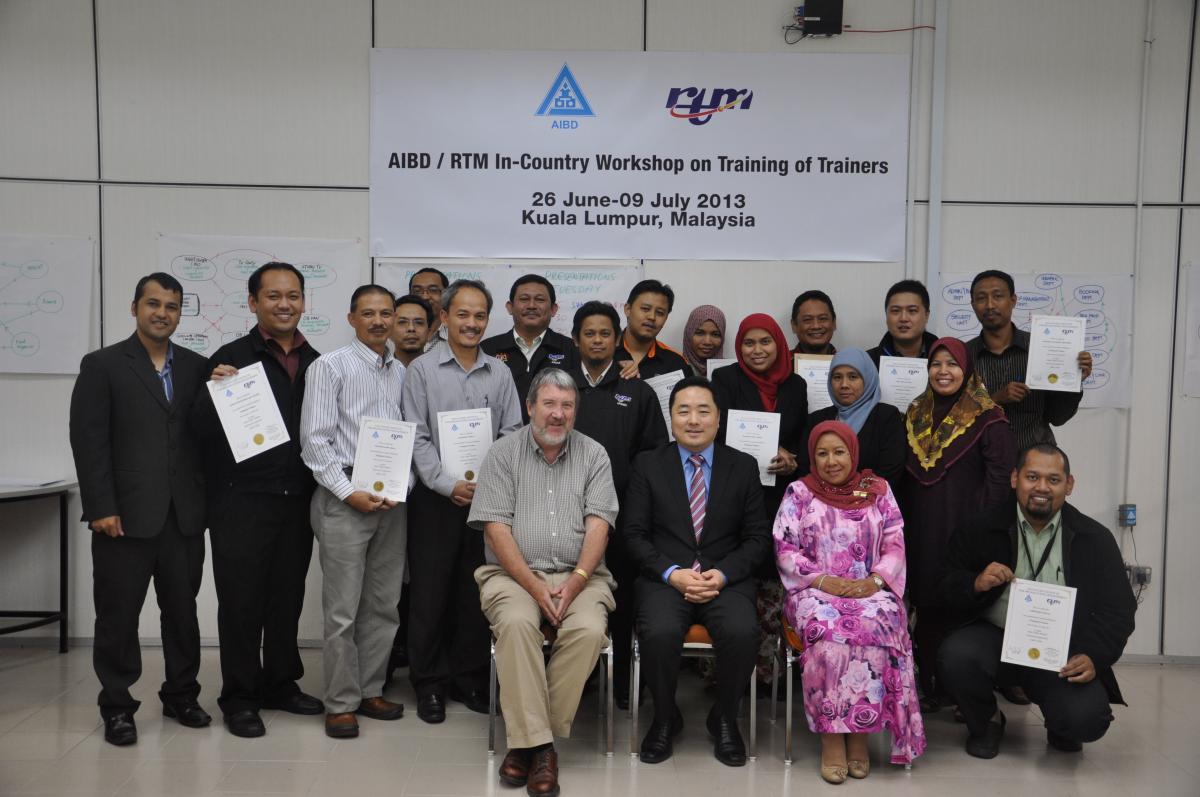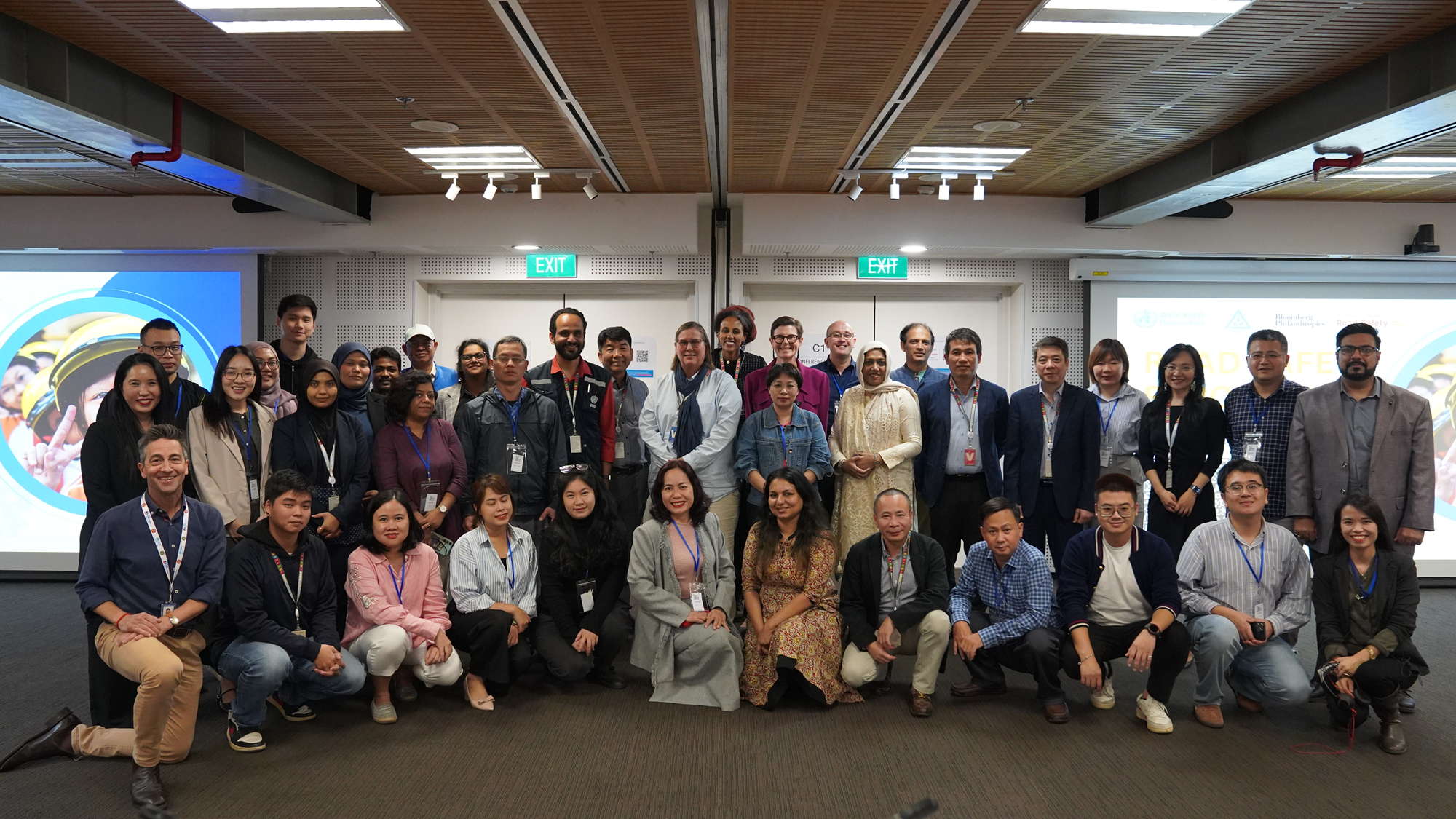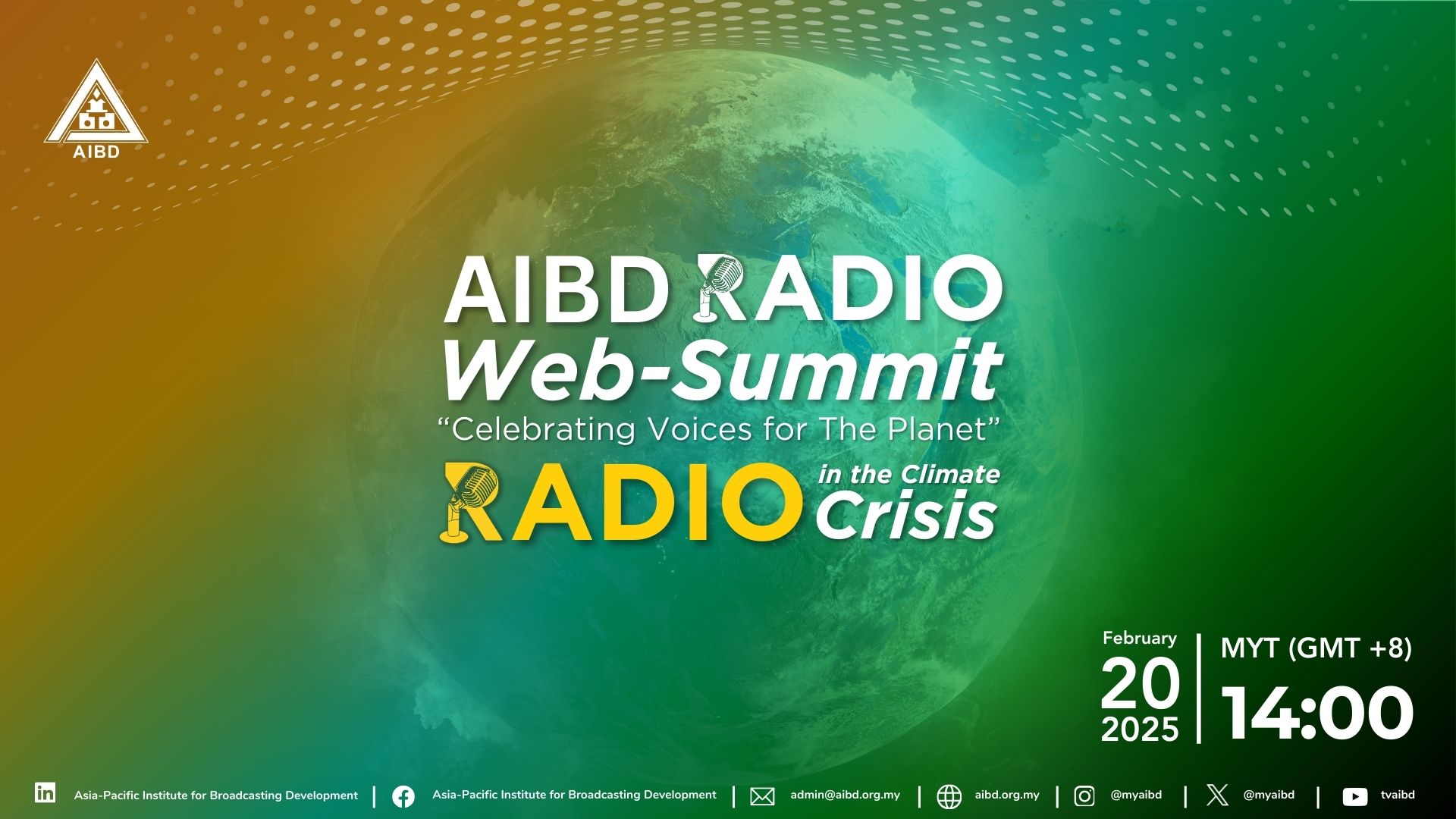
AIBD/ RTM In-Country Workshop on Training of Trainers
AIBD/ RTM in-country workshop on Training of Trainers was held from 26 June to 9 July 2013 in Kuala Lumpur. It was organized by AIBD and supported by Radio Television Malaysia (RTM). The training was facilitated by Dr. David Mould, Professor Emeritus of Media Arts and Studies at Ohio University (U.S.A.)
AIBD/ RTM in-country workshop on Training of Trainers was held from 26 June to 9 July 2013 in Kuala Lumpur. It was organized by AIBD and supported by Radio Television Malaysia (RTM). The training was facilitated by Dr. David Mould, Professor Emeritus of Media Arts and Studies at Ohio University (U.S.A.)

How do you design a training course on technical quality control of video content or baseband line performance testing? An engaging group activity on parabolic antenna alignment or network troubleshooting? A protocol on how to respond to viewer complaints about VHF and UHF TV reception? And how do you make sure your trainees gain the knowledge and skills they need to apply on the job?
“All the trainers knew their subject-matter thoroughly but faced problems in organizing and communicating knowledge and skills and assessing learning,” said David. “Even on the most technical topics, you can come up with challenging and engaging individual and group exercises and guided discussions that make trainees work through problems and come up with solutions.”

The 10-day workshop covered the aims of training, principles of adult learning, job analysis, training needs analysis, motivational theory, training objectives, online training, demonstrations, session design, evaluation and assessment and related topics. Using questionnaires and discussion, the workshop also focused on “soft skills” including team-building and organizational communication. Each participant designed a training plan, including objectives, draft activities and assessment, and presented it to their colleagues for comments and critique.

The 14 participants from RTM and IPPTAR were from various sections and divisions including multi-channel broadcasting, satellite broadcasting, digital interactive engineering, technical facility, broadcast operation, production, technical network (transmitters), radio production, studio TV production and IT maintenance. They showed a good grasp not only of how training can improve standards and performance in their units, but also of the need to create efficiencies in human resources, motivate staff, and enhance RTM’s brand in the market.





